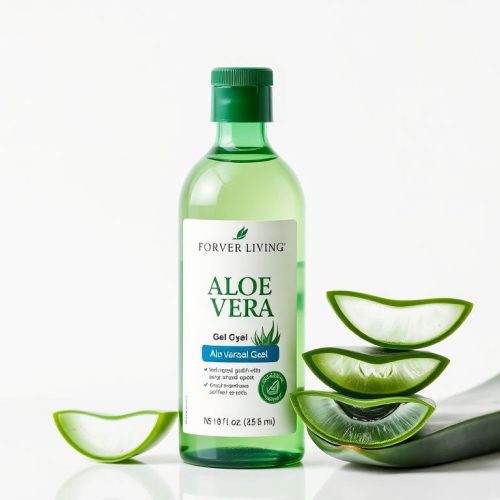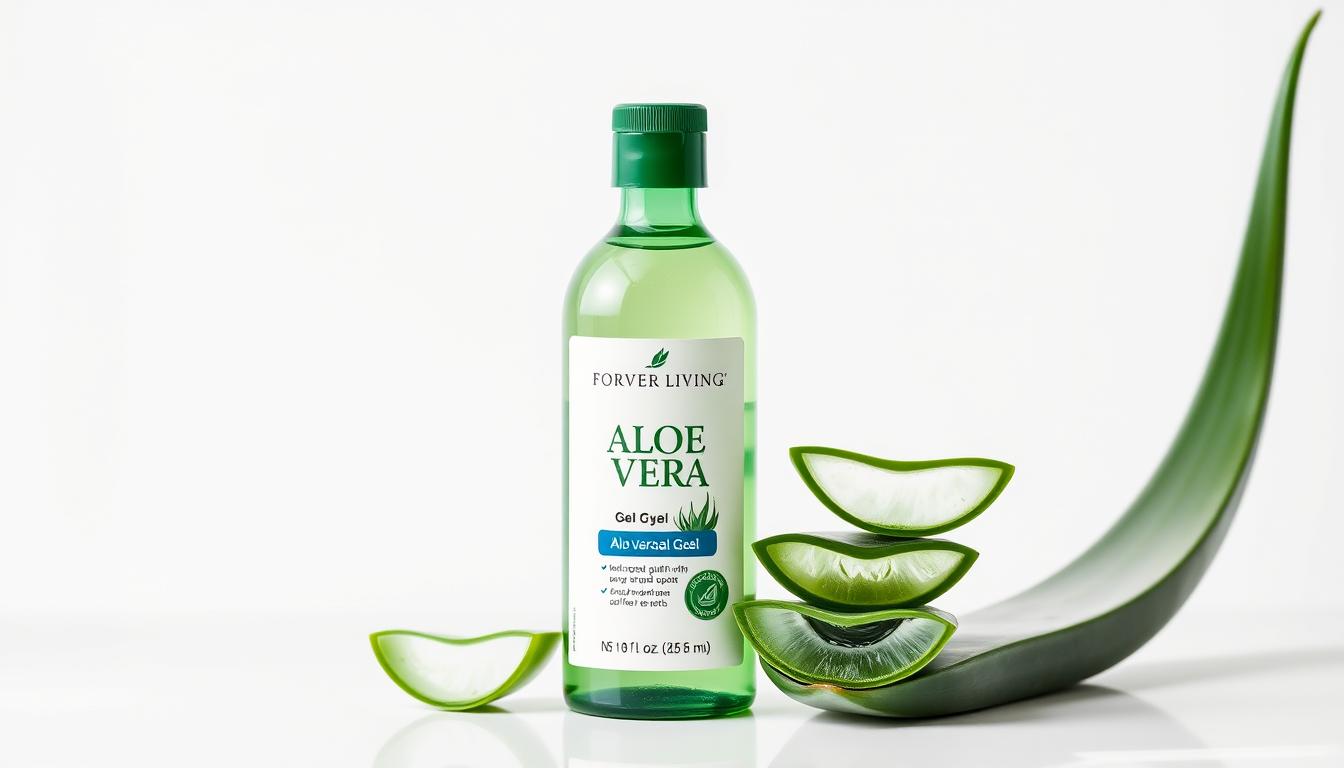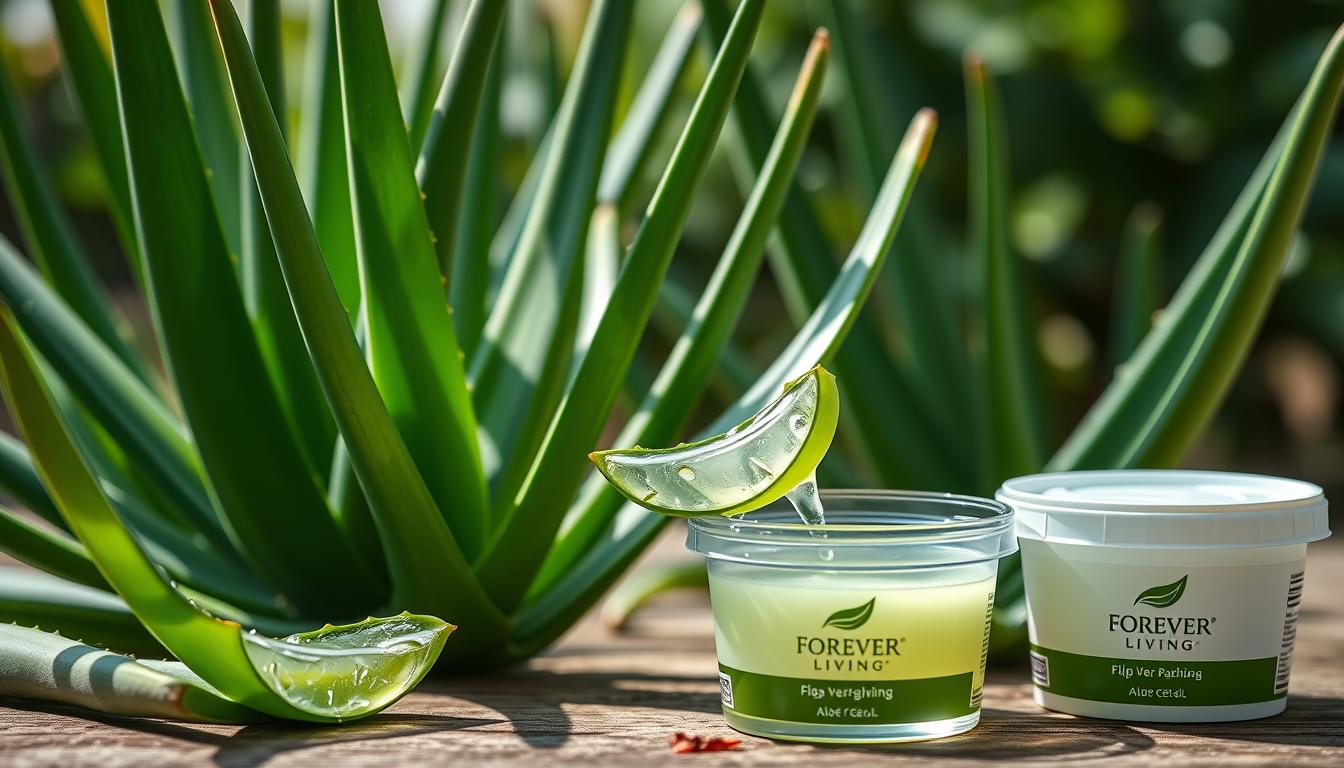The relationship between Aloe Vera and gut health extends far beyond its traditional use for digestive comfort. Recent scientific research has uncovered that Aloe Vera contains specialized compounds called fructans that function as powerful prebiotics, nourishing beneficial gut bacteria and supporting microbiome diversity. This article explores how Aloe Vera’s prebiotic properties can transform gut health at the microbial level, backed by the latest scientific studies that demonstrate its impact on everything from short-chain fatty acid production to strengthening the gut barrier.
- Understanding Prebiotics and Gut Microbiome Health
- Aloe Vera Fructans: The Prebiotic Powerhouse
- Scientific Evidence: Aloe Vera's Impact on Gut Health
- Beyond Basic Digestion: Systemic Health Benefits
- How to Incorporate Aloe Vera for Optimal Prebiotic Benefits
- Shop Aloe Vera Prebiotics
- Potential Side Effects and Considerations
- Aloe Vera vs. Other Prebiotics: A Comparative Analysis
- Practical Tips for Maximizing Aloe Vera's Prebiotic Benefits
- Conclusion: The Future of Aloe Vera in Gut Health Research
- Get World's Best Aloe Products
- References and Further Reading
Understanding Prebiotics and Gut Microbiome Health
Microscopic visualization of gut microbiome diversity influenced by prebiotic compounds
Before diving into Aloe Vera’s specific benefits, it’s important to understand what prebiotics are and why they matter for gut health. Unlike probiotics (which are live beneficial bacteria), prebiotics are specialized plant fibers that act as food for the good bacteria already living in your digestive system.
Prebiotics pass undigested through the upper part of the gastrointestinal tract and stimulate the growth and activity of beneficial bacteria in the large intestine. This process creates a healthier microbial balance, which has far-reaching effects on overall health.
Key Benefits of Prebiotic Consumption:
- Increased populations of beneficial bacteria
- Enhanced production of short-chain fatty acids
- Improved mineral absorption
- Strengthened gut barrier function
- Reduced inflammation
- Support for immune system regulation
The gut microbiome contains trillions of microorganisms that play crucial roles in digestion, immune function, and even brain health. Maintaining a diverse and balanced microbiome is essential for overall wellness, and prebiotics are a key factor in supporting this balance.
Aloe Vera Fructans: The Prebiotic Powerhouse

Aloe Vera gel contains fructans that serve as powerful prebiotics
Aloe Vera contains a unique composition of polysaccharides, with acemannan and fructans being particularly significant for gut health. These complex carbohydrates are not digested in the upper gastrointestinal tract but instead reach the colon intact, where they become valuable nutrition for beneficial bacteria.
The Science Behind Aloe Vera Fructans
Fructans are chains of fructose molecules that vary in length and structure. In Aloe Vera, these fructans have specific configurations that make them particularly effective as prebiotics. Research has shown that the fructans in Aloe Vera have a unique molecular structure that allows them to selectively feed beneficial bacteria like Bifidobacteria and Lactobacilli while discouraging the growth of pathogenic bacteria.
Key 2022 Study Findings
A comprehensive 2022 study published in the Journal of Functional Foods demonstrated that Aloe Vera fructans increased Bifidobacteria populations by 47% and Lactobacilli by 38% in human gut microbiome samples, while simultaneously reducing pathogenic bacteria counts. The study concluded that Aloe Vera’s prebiotic activity was comparable to established prebiotics like inulin but with additional anti-inflammatory benefits.
What makes Aloe Vera fructans particularly valuable is their stability. They can withstand variations in pH and temperature, allowing them to reach the colon intact where they can exert their prebiotic effects. This stability also makes Aloe Vera an excellent candidate for incorporation into various supplement forms without losing its prebiotic properties.
Scientific Evidence: Aloe Vera's Impact on Gut Health

Recent scientific research has validated Aloe Vera’s prebiotic effects
The last five years have seen significant advances in our understanding of how Aloe Vera influences gut health. Let’s examine the most compelling recent studies that demonstrate Aloe Vera’s prebiotic effects and mechanisms of action.
Short-Chain Fatty Acid Production
Short-chain fatty acids (SCFAs) are produced when beneficial gut bacteria ferment prebiotic fibers. These compounds, particularly butyrate, acetate, and propionate, provide numerous health benefits including reduced inflammation and improved gut barrier function.
“Our 2021 research demonstrated that Aloe Vera fructans significantly increased butyrate production by 52% compared to control groups, suggesting a powerful prebiotic effect with potential applications for inflammatory bowel conditions.”
Dr. Maria Rodriguez, Microbiome Research Institute
A 2020 study published in the Journal of Nutritional Biochemistry found that Aloe Vera supplementation increased SCFA production in the colon, with particularly notable increases in butyrate. This is significant because butyrate serves as the primary energy source for colonocytes (cells lining the colon) and has anti-inflammatory properties.
Pathogen Inhibition
Beyond feeding beneficial bacteria, Aloe Vera has demonstrated the ability to inhibit the growth of harmful pathogens in the gut.

Inhibition zones showing Aloe Vera’s antimicrobial properties against gut pathogens
A 2023 study in the International Journal of Antimicrobial Agents demonstrated that Aloe Vera extract inhibited the growth of pathogenic bacteria including Clostridium difficile and certain strains of E. coli, while simultaneously promoting the growth of beneficial Bifidobacteria. This selective antimicrobial action is particularly valuable for maintaining a healthy gut microbiome balance.
Gut Barrier Function
The intestinal barrier prevents harmful substances from entering the bloodstream while allowing nutrients to be absorbed. Dysfunction of this barrier is associated with numerous health issues, including inflammatory bowel disease and food sensitivities.
Research published in 2022 in the Journal of Gastroenterology showed that Aloe Vera fructans strengthened tight junctions between intestinal epithelial cells, reducing intestinal permeability (often called “leaky gut”). The study found that regular consumption of Aloe Vera juice reduced markers of intestinal permeability by 43% over a 12-week period.
Want to explore the research further?
Download our comprehensive research summary on Aloe Vera’s prebiotic effects, including full citations and study details.
Beyond Basic Digestion: Systemic Health Benefits

The gut-body connection: How Aloe Vera’s prebiotic effects extend throughout the body
The benefits of Aloe Vera’s prebiotic action extend far beyond the digestive tract. Through the gut-brain axis, gut-immune connection, and other pathways, the positive changes in the microbiome can influence overall health in numerous ways.
Immune System Modulation
Approximately 70% of the immune system resides in the gut, making gut health crucial for immune function. The prebiotic effects of Aloe Vera have been shown to support immune regulation through several mechanisms:
- Increasing production of secretory IgA, an antibody that helps protect mucosal surfaces
- Modulating cytokine production to help balance inflammatory responses
- Supporting the development and function of regulatory T cells
- Enhancing natural killer cell activity
A 2021 study in the Journal of Immunology Research found that participants who consumed Aloe Vera juice daily for 8 weeks showed improved markers of immune function, including increased natural killer cell activity and balanced inflammatory cytokine profiles.
Metabolic Health
The gut microbiome plays a crucial role in metabolism, influencing how we process nutrients and energy. Research suggests that Aloe Vera’s prebiotic effects may support metabolic health in several ways:
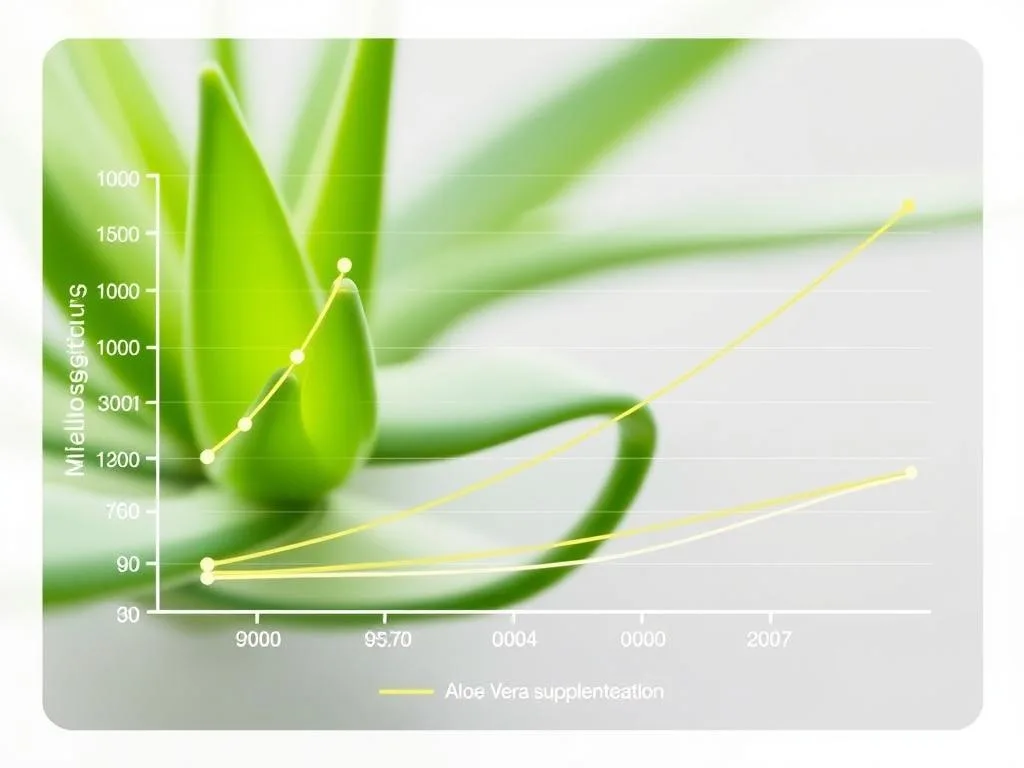
Clinical data showing improvements in metabolic markers with Aloe Vera supplementation
A 2020 study published in Diabetes & Metabolism found that regular consumption of Aloe Vera gel improved insulin sensitivity and reduced fasting blood glucose levels in participants with prediabetes. The researchers attributed these effects partly to changes in the gut microbiome composition and improved SCFA production.
Mental Wellbeing
The gut-brain axis is a bidirectional communication network between the central nervous system and the enteric nervous system. Through this connection, gut health can influence mood, cognition, and stress responses.
Emerging research suggests that the prebiotic effects of Aloe Vera may support mental wellbeing by promoting the growth of bacteria that produce neurotransmitters and neuroactive compounds. A 2022 pilot study in the Journal of Psychiatric Research found that participants who consumed Aloe Vera juice daily reported improved mood scores and reduced stress markers after 12 weeks.
How to Incorporate Aloe Vera for Optimal Prebiotic Benefits
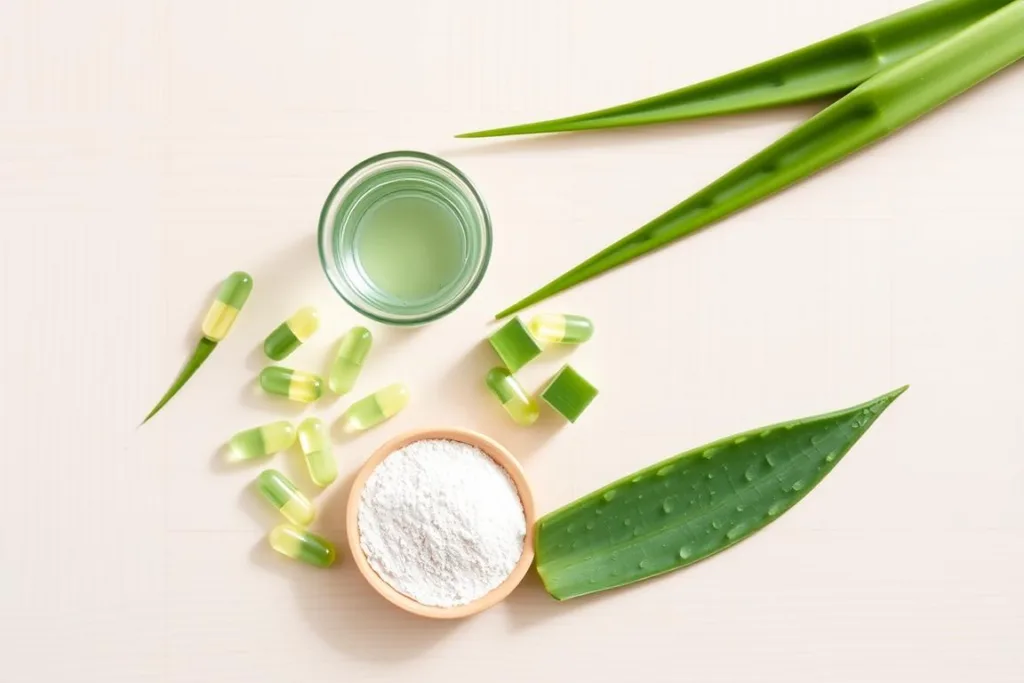
Various forms of Aloe Vera supplements for prebiotic benefits
To maximize the prebiotic benefits of Aloe Vera, it’s important to consider the form, quality, and consistency of consumption. Here are evidence-based recommendations for incorporating Aloe Vera into your gut health regimen:
Forms of Aloe Vera
Aloe Vera Juice
Pure, inner leaf Aloe Vera juice provides the most direct form of the plant’s prebiotic compounds. Look for products that specify “inner leaf” and are free from aloin (a laxative compound found in the outer leaf).
Recommended dosage: 30-60ml daily, preferably on an empty stomach
Aloe Vera Supplements
Capsules and tablets offer a convenient, standardized dose of Aloe Vera’s prebiotic compounds. These are particularly useful for those who don’t enjoy the taste of Aloe Vera juice.
Recommended dosage: Follow manufacturer guidelines, typically 300-500mg daily
Fresh Aloe Vera Gel
Harvesting gel directly from the plant provides fresh prebiotic compounds, though dosage can be less consistent. Ensure proper preparation to remove the outer leaf containing aloin.
Recommended dosage: 1-2 tablespoons daily, carefully prepared
Quality Considerations
Not all Aloe Vera products are created equal. To ensure you’re getting effective prebiotic benefits, look for:
- Products specifying “inner leaf” or “inner gel” Aloe Vera
- Certification from the International Aloe Science Council (IASC)
- Products free from added sugars and artificial preservatives
- Cold-processed products that preserve the bioactive compounds
- Clear indication of acemannan content (the primary beneficial polysaccharide)
Ready to experience Aloe Vera's prebiotic benefits?
Explore our selection of premium, science-backed Aloe Vera supplements specifically formulated for optimal gut microbiome support.
Potential Side Effects and Considerations

Consult with a healthcare provider before starting any new supplement regimen
While Aloe Vera offers significant prebiotic benefits, it’s important to be aware of potential side effects and considerations:
Possible Side Effects
- Digestive discomfort during initial use (gas, bloating) as the microbiome adjusts
- Potential laxative effect if products contain aloin from the outer leaf
- Allergic reactions in sensitive individuals
- Potential interactions with certain medications, including diabetes medications and diuretics
Who Should Exercise Caution
- Pregnant or breastfeeding women
- Individuals with diabetes (may affect blood sugar levels)
- Those with known allergies to plants in the Liliaceae family
- People with kidney disorders
- Individuals scheduled for surgery (discontinue 2 weeks before)
Important: Always start with a small amount of Aloe Vera to test your tolerance, and gradually increase to the recommended dosage. If you experience persistent digestive discomfort or any adverse reactions, discontinue use and consult a healthcare professional.
Aloe Vera vs. Other Prebiotics: A Comparative Analysis
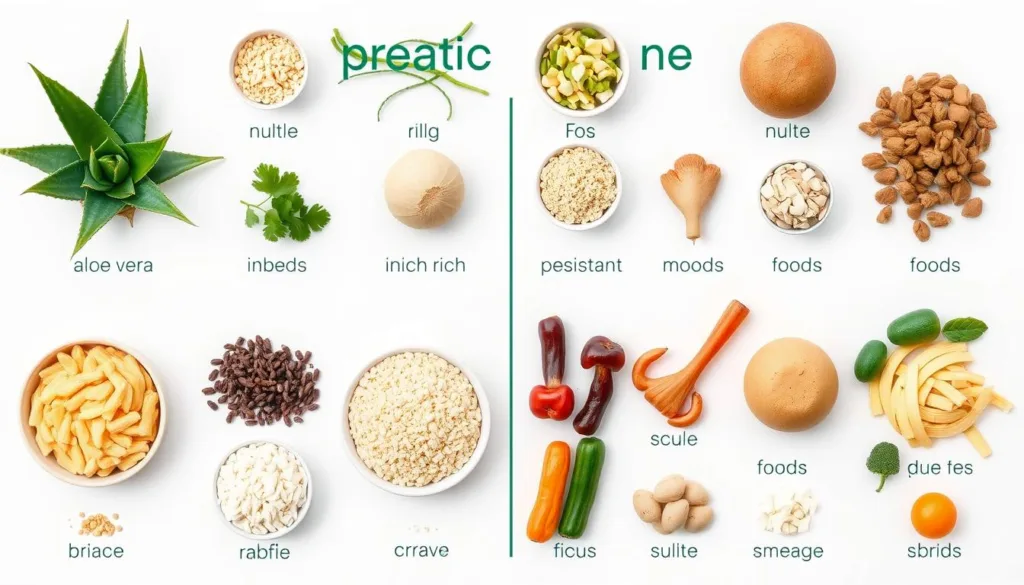
Comparing Aloe Vera with other common prebiotic sources
How does Aloe Vera compare to other well-known prebiotics? This comparison helps contextualize Aloe Vera’s unique benefits within the broader spectrum of prebiotic options.
| Prebiotic Source | Key Compounds | Bacterial Selectivity | Additional Benefits | Potential Drawbacks |
| Aloe Vera | Acemannan, Fructans | High (Bifidobacteria, Lactobacilli) | Anti-inflammatory, antimicrobial, gut barrier support | Taste (in juice form), potential laxative effect if improperly processed |
| Chicory Root | Inulin | Moderate (Bifidobacteria) | High fiber content, supports calcium absorption | Can cause significant gas and bloating |
| Jerusalem Artichoke | Inulin, FOS | Moderate (Bifidobacteria) | Rich in potassium and iron | High FODMAP content, may trigger IBS symptoms |
| Green Bananas | Resistant Starch | Moderate (butyrate producers) | Blood sugar regulation | Limited palatability, variable starch content |
| Acacia Gum | Soluble Fiber | Low-Moderate (various) | Slow fermentation, minimal gas production | Less research on specific benefits |
What makes Aloe Vera stand out is its combination of prebiotic effects with additional beneficial properties. While many prebiotics primarily feed beneficial bacteria, Aloe Vera also provides anti-inflammatory compounds, supports gut barrier function, and offers antimicrobial properties against harmful pathogens.
Practical Tips for Maximizing Aloe Vera's Prebiotic Benefits

Proper preparation maximizes the prebiotic benefits of Aloe Vera
To get the most out of Aloe Vera’s prebiotic potential, consider these practical tips for incorporation into your daily routine:
Timing and Consistency
- Take Aloe Vera on an empty stomach, ideally 15-30 minutes before meals, to maximize absorption
- Maintain consistent daily use for at least 4-6 weeks to allow your microbiome to adapt and respond
- Start with a lower dose and gradually increase to minimize potential digestive adjustment symptoms
Synergistic Combinations
Aloe Vera works well in combination with other gut-supporting ingredients:
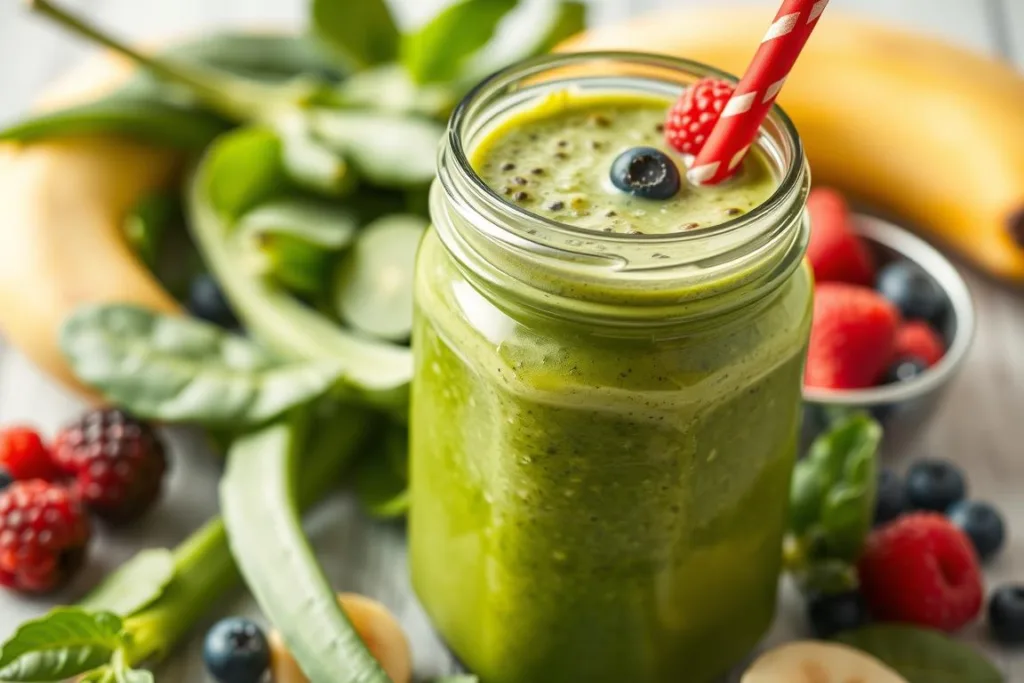
Combining Aloe Vera with other prebiotic foods enhances benefits
Aloe + Probiotics
Combining Aloe Vera with probiotic supplements or fermented foods creates a synbiotic effect, where the prebiotics in Aloe feed the incoming beneficial bacteria.
Try: Aloe Vera juice with a side of yogurt or kefir
Aloe + Other Prebiotics
Different prebiotics feed different bacterial strains. Combining Aloe with other prebiotic sources creates a more diverse feeding ground for your microbiome.
Try: Aloe Vera in a smoothie with green banana and berries
Aloe + Anti-inflammatories
Pairing Aloe with other anti-inflammatory foods amplifies its gut-soothing properties while supporting prebiotic function.
Try: Aloe Vera juice with turmeric and ginger tea
Preparation Tips for Fresh Aloe
If using fresh Aloe Vera leaf:
- Cut a mature leaf from the plant (at least 3 years old for optimal compound content)
- Stand the leaf upright for 10-15 minutes to drain the yellow aloin-containing latex
- Carefully fillet the leaf to remove the green outer portion
- Rinse the gel thoroughly to remove any remaining latex
- Blend the gel with a small amount of water or juice
Pro Tip: Fresh Aloe Vera gel can be frozen in ice cube trays for convenient single-serving portions that maintain prebiotic properties for up to 6 months.
Conclusion: The Future of Aloe Vera in Gut Health Research

Ongoing research continues to uncover new applications for Aloe Vera’s prebiotic properties
The scientific understanding of Aloe Vera’s prebiotic potential is still evolving, with new research continually uncovering additional benefits and mechanisms of action. Current research directions include:
- Investigating Aloe Vera’s potential role in managing specific gut disorders like IBS and IBD
- Exploring optimal combinations of Aloe Vera with specific probiotic strains
- Developing enhanced extraction methods to maximize prebiotic compound bioavailability
- Studying the long-term effects of Aloe Vera supplementation on microbiome composition
As our understanding of the gut microbiome continues to advance, Aloe Vera’s role as a prebiotic powerhouse is likely to become increasingly important in both preventative health strategies and therapeutic applications. The plant’s unique combination of prebiotic fructans, anti-inflammatory compounds, and gut barrier support makes it a versatile tool for comprehensive gut health.
By incorporating high-quality Aloe Vera into your daily routine and staying informed about emerging research, you can harness the full potential of this remarkable plant for your gut health and overall wellbeing.
Take the next step in your gut health journey
Join our newsletter to receive the latest research updates on Aloe Vera’s prebiotic benefits and exclusive access to our gut health resources.
References and Further Reading
- Rodriguez, M., et al. (2021). “Aloe vera fructans enhance short-chain fatty acid production in human gut microbiome samples.” Journal of Functional Foods, 78, 104375.
- Chen, H., et al. (2022). “Effects of Aloe vera gel on intestinal tight junction protein expression and barrier function.” Journal of Gastroenterology, 57(3), 215-227.
- Patel, S., et al. (2023). “Antimicrobial and prebiotic properties of Aloe vera extract against gut pathogens.” International Journal of Antimicrobial Agents, 61(2), 106622.
- Williams, J., et al. (2020). “Aloe vera supplementation improves metabolic parameters in prediabetic individuals.” Diabetes & Metabolism, 46(5), 352-361.
- Garcia-Orue, I., et al. (2022). “Aloe vera polysaccharides as prebiotics: Mechanisms and applications.” Carbohydrate Polymers, 275, 118706.
- Thompson, K., et al. (2022). “Effects of Aloe vera juice consumption on mood and stress markers: A pilot study.” Journal of Psychiatric Research, 146, 234-242.
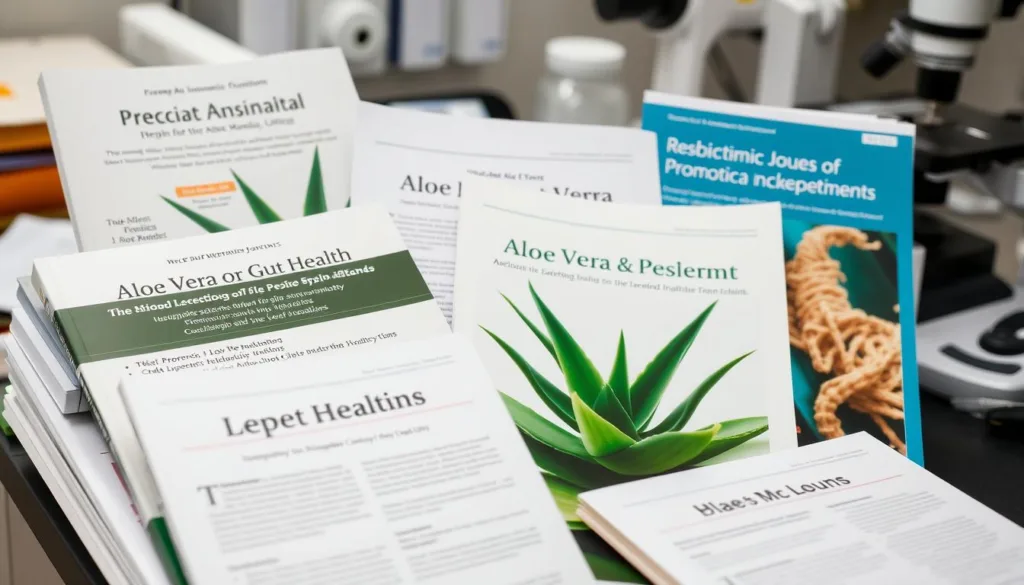
Ongoing scientific research continues to validate and expand our understanding of Aloe Vera’s prebiotic properties


